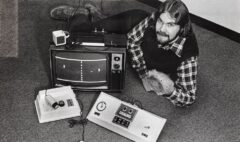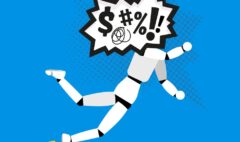Getting Past Procastination
Getting Past Procastination

This article is crossposted from IEEE Spectrum’s careers newsletter. Sign up now to get insider tips, expert advice, and practical strategies, written in partnership with tech career development company Taro and delivered to your inbox for free!
Across a decade working at hypergrowth tech companies like Meta and Pinterest, I constantly struggled with procrastination. I’d be assigned an important project, but I simply couldn’t get myself to get started. The source of my distraction varied—I would constantly check my email, read random documentation, or even scroll through my social feeds. But the result was the same: I felt a deep sense of dread that I was not making progress on the things that mattered.
At the end of the day, time is the only resource that matters. With every minute, you are making a decision about how to spend your life. Most of the ways people spend their time are ineffective. Especially in the tech world, our tasks and tools are constantly changing, so we must be able to adapt. What separates the best engineers from the rest of the pack is that they create systems that allow them to be consistently productive.
Here’s the core idea that changed my perspective on productivity: Action leads to motivation, not the other way around. You should not check your email or scroll Instagram while you wait for motivation to “hit you.” Instead, just start doing something, anything, that makes progress toward your goal, and you’ll find that motivation will follow.
For example, if I have a high-priority, complex bug-fixing challenge at work, my approach is to decompose the problem into something much simpler. Could I simply add a log statement that prints the value of a relevant variable? My goal at this point is not to solve the bug, it’s simply to take a tiny step forward.
This creates a powerful flywheel: you’re productive → you feel good → you’re more productive.
Unfortunately, many engineers are stuck in the opposite flywheel, a downward spiral of procrastination: you’re unproductive → you feel bad → you’re unproductive.
The idea that motivation follows naturally from progress lets us lower the activation energy needed to enter the upward spiral. Author and motivational speaker Tony Robbins talks about a related concept that “motion creates emotion.” The actions we take, and even the way we move our body, affect how we feel. Once you realize that you can control your motivation, you can achieve stress-free productivity.
—Rahul
Overcoming Tech Workforce Shortages With IEEE Microcredentials
A shortage of technical workers is coming. Currently, most of these roles require university degrees, but specialized training through focused, skills-based microcredential courses could provide an alternative and expand the workforce. IEEE’s microcredentials program offers credentials that focus on the skills needed to become a technician, electrician, or programmer, regardless of educational background.
How Software Engineers Actually Use AI
Amidst conflicting accounts of how programmers use AI on the job, Wired surveyed 730 coders to get more clarity—then used ChatGPT to comb through the data, with plenty of help from human editors and fact-checkers. The survey asked coders how much they use AI, their outlook on the technology, and how it has changed their jobs, among other questions.
Profile: A Knee Injury Launched This VR Pioneer’s Career
Unlike many engineers, Carolina Cruz-Neira had little interest in technology as a child. Instead, she dreamed of becoming a professional ballerina. But when an injury forced her to pivot, Cruz-Neira found success in computer science, eventually blending her interests in art and science as a pioneer in virtual reality.
This article is crossposted from IEEE Spectrum’s careers newsletter. Sign up now to get insider tips, expert advice, and practical strategies, written in partnership with tech career development company Taro and delivered to your inbox for free!Across a decade working at hypergrowth tech companies like Meta and Pinterest, I constantly struggled with procrastination. I’d be assigned an important project, but I simply couldn’t get myself to get started. The source of my distraction varied—I would constantly check my email, read random documentation, or even scroll through my social feeds. But the result was the same: I felt a deep sense of dread that I was not making progress on the things that mattered.At the end of the day, time is the only resource that matters. With every minute, you are making a decision about how to spend your life. Most of the ways people spend their time are ineffective. Especially in the tech world, our tasks and tools are constantly changing, so we must be able to adapt. What separates the best engineers from the rest of the pack is that they create systems that allow them to be consistently productive.Here’s the core idea that changed my perspective on productivity: Action leads to motivation, not the other way around. You should not check your email or scroll Instagram while you wait for motivation to “hit you.” Instead, just start doing something, anything, that makes progress toward your goal, and you’ll find that motivation will follow.For example, if I have a high-priority, complex bug-fixing challenge at work, my approach is to decompose the problem into something much simpler. Could I simply add a log statement that prints the value of a relevant variable? My goal at this point is not to solve the bug, it’s simply to take a tiny step forward.This creates a powerful flywheel: you’re productive → you feel good → you’re more productive.Unfortunately, many engineers are stuck in the opposite flywheel, a downward spiral of procrastination: you’re unproductive → you feel bad → you’re unproductive.The idea that motivation follows naturally from progress lets us lower the activation energy needed to enter the upward spiral. Author and motivational speaker Tony Robbins talks about a related concept that “motion creates emotion.” The actions we take, and even the way we move our body, affect how we feel. Once you realize that you can control your motivation, you can achieve stress-free productivity.—RahulOvercoming Tech Workforce Shortages With IEEE MicrocredentialsA shortage of technical workers is coming. Currently, most of these roles require university degrees, but specialized training through focused, skills-based microcredential courses could provide an alternative and expand the workforce. IEEE’s microcredentials program offers credentials that focus on the skills needed to become a technician, electrician, or programmer, regardless of educational background.Read more here.How Software Engineers Actually Use AIAmidst conflicting accounts of how programmers use AI on the job, Wired surveyed 730 coders to get more clarity—then used ChatGPT to comb through the data, with plenty of help from human editors and fact-checkers. The survey asked coders how much they use AI, their outlook on the technology, and how it has changed their jobs, among other questions.Read more here.Profile: A Knee Injury Launched This VR Pioneer’s CareerUnlike many engineers, Carolina Cruz-Neira had little interest in technology as a child. Instead, she dreamed of becoming a professional ballerina. But when an injury forced her to pivot, Cruz-Neira found success in computer science, eventually blending her interests in art and science as a pioneer in virtual reality. Read more here.












